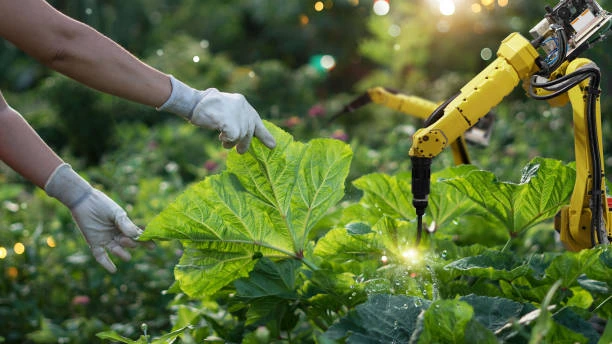Course Overview:
Pest Management in Agriculture is designed to equip participants with the knowledge and practical skills necessary to develop and implement integrated pest management (IPM) strategies. The course focuses on sustainable pest control methods to enhance agricultural productivity while reducing the environmental impact of conventional pesticide use. Participants will explore biological control, chemical methods, pest monitoring, and decision-making tools that are essential for effective pest management. The course also covers new trends, challenges, and innovations in pest control, with an emphasis on sustainable agriculture practices.
Duration
10 Days
Who Should Attend
- Agricultural Extension Officers
- Farm Managers and Agronomists
- Pest Control Advisors and Consultants
- Agricultural Researchers and Scientists
- Government Officials in Agriculture and Environmental Sectors
- Agricultural Students and Educators
- Agri-business Entrepreneurs
- Farm Owners and Operators
Course Objectives
By the end of this course, participants will be able to:
- Understand the principles and importance of integrated pest management (IPM).
- Identify common agricultural pests, diseases, and weeds affecting major crops.
- Implement biological, cultural, mechanical, and chemical pest control methods effectively.
- Monitor pest populations and predict pest outbreaks using scientific approaches.
- Minimize the impact of pesticides on non-target organisms and the environment.
- Develop IPM programs tailored to specific crops and regions.
- Analyze pest resistance and apply resistance management strategies.
- Explore new technologies and innovations in sustainable pest control practices.
Course Outline:
Module 1: Introduction to Pest Management in Agriculture
- Overview of Agricultural Pests (Insects, Diseases, Weeds, and Rodents)
- History and Evolution of Pest Control Practices
- The Role of Pests in Agricultural Ecosystems
- Importance of Pest Management for Food Security
Module 2: Principles of Integrated Pest Management (IPM)
- Definition and Scope of IPM
- Components and Strategies of IPM
- Economic Thresholds and Action Levels
- Decision-Making in IPM
Module 3: Pest Identification and Diagnosis
- Key Agricultural Pests of Major Crops
- Identification Techniques (Insect Pests, Weeds, Pathogens)
- Diagnostic Tools for Pest Detection
- The Role of Environmental Factors in Pest Incidence
Module 4: Biological Control of Pests
- Natural Enemies (Predators, Parasitoids, and Pathogens)
- Conservation of Beneficial Organisms
- Introduction and Augmentation of Biological Control Agents
- Case Studies on Successful Biological Control Programs
Module 5: Chemical Pest Control and Pesticide Management
- Classes of Pesticides and Modes of Action
- Safe Use, Handling, and Disposal of Pesticides
- Pesticide Resistance and Management
- Environmental and Health Impacts of Pesticides
Module 6: Cultural and Mechanical Pest Control Methods
- Crop Rotation, Intercropping, and Soil Management
- Use of Traps, Barriers, and Physical Methods
- Role of Sanitation and Hygiene in Pest Prevention
- Case Studies on Cultural and Mechanical Control Successes
Module 7: Monitoring and Surveillance of Pest Populations
- Techniques for Pest Monitoring and Forecasting
- Use of Traps, Sensors, and Other Monitoring Tools
- Analysis and Interpretation of Pest Data
- Decision Support Systems for Pest Management
Module 8: Resistance Management Strategies
- Mechanisms of Pest Resistance to Pesticides
- Resistance Management Programs
- Case Studies on Managing Pest Resistance in the Field
Module 9: Innovations and Emerging Trends in Pest Management
- Use of Drones and AI in Pest Monitoring
- Genetically Modified Organisms (GMOs) and Pest Resistance
- Biopesticides and Organic Pest Control Methods
- Advances in Pest Control Technologies
Module 10: Development of a Pest Management Plan
- Steps to Create an IPM Program for Specific Crops
- Regional Considerations and Crop-Specific Pest Control
- Hands-on Exercises: Designing and Presenting a Pest Management Plan
Customized Training
This training can be tailored to your institution needs and delivered at a location of your choice upon request.
Requirements
Participants need to be proficient in English.
Training Fee
The fee covers tuition, training materials, refreshments, lunch, and study visits. Participants are responsible for their own travel, visa, insurance, and personal expenses.
Certification
A certificate from Ideal Sense & Workplace Solutions is awarded upon successful completion.
Accommodation
Accommodation can be arranged upon request. Contact via email for reservations.
Payment
Payment should be made before the training starts, with proof of payment sent to outreach@idealsense.org.
For further inquiries, please contact us on details below:






